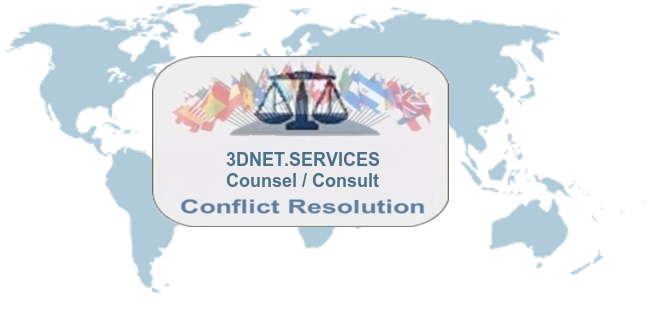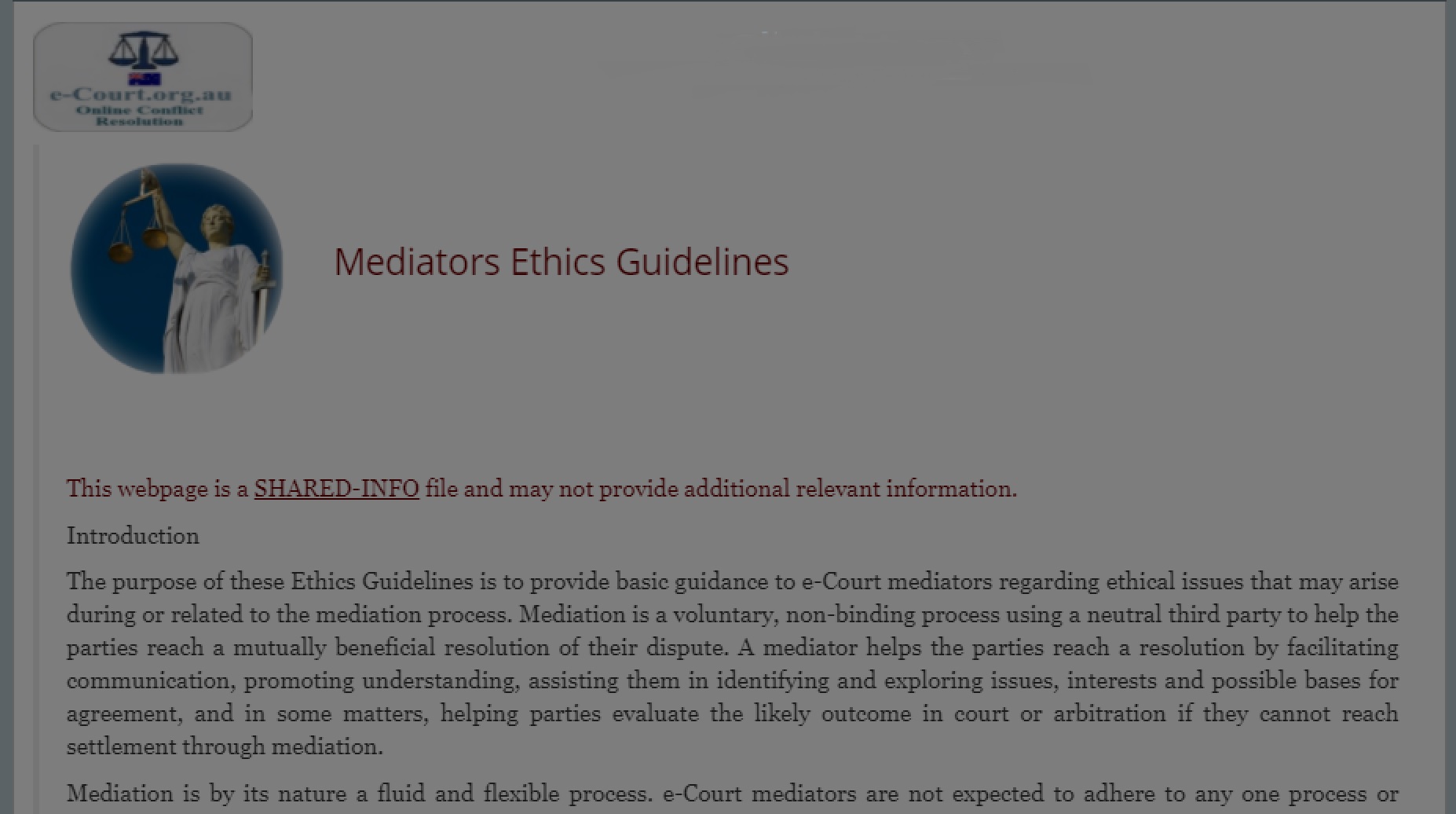
MEDIATION ETHICS GUIDELINES
e-Court strongly encourages its mediators to confront directly any ethical issues that arise in their cases as soon as the issue becomes apparent, and to seek advice on how to resolve such issues from the Regional Management Team.
A mediator should ensure that all parties understand and agree to mediation as a process, the mediator's role in that process and all parties' relationship to the mediator. The parties should also understand the particular procedures the mediator intends to employ, including whether and in what manner the mediator may help the parties evaluate the likely outcome of the dispute in court or arbitration if they cannot reach settlement through mediation. In addition, a mediator should be satisfied that the parties have considered and understood the terms of any settlement, and should, if appropriate, advise the parties to seek legal or other specialized advice.
If the mediator perceives that a party is unable to give informed consent to participation in the process or to the terms of settlement due to, for example, the impact of a physical or mental impairment, the process should not continue until the mediator is satisfied that such informed consent has been obtained from the party or the party's duly authorized representative. Further info, please .....

